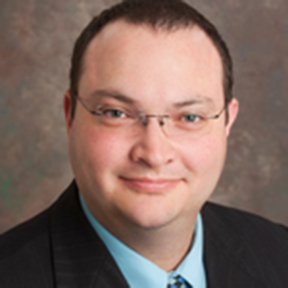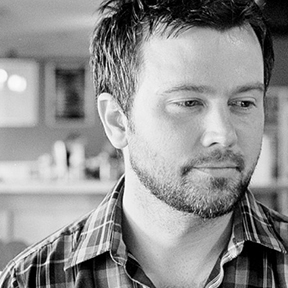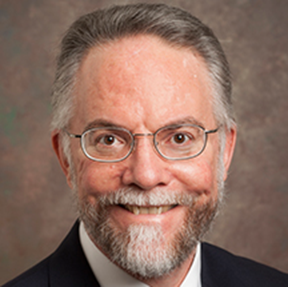Digital Storytelling, Guest Presentation, June 3
Date: Wednesday, June 3
Time: 9:00 – 10:00 a.m.
Location: Mitchell Auditorium
Digital Storytelling to Scholarly Storytelling from Summer Faculty Institute 2015
Alongside strong writing and speaking skills, crafting media messages represents an essential literacy helping students share their stories with a global audience. As media projects continue to increase in a range of academic areas, digital storytelling provides a common set of strategies and skills on which to build. Dr. Kyle Dickson will describe how faculty at Abilene Christian University paired training in media production with digital storytelling in courses from composition and journalism to psychology and math.
 Kyle Dickson, Abilene Christian University
Kyle Dickson, Abilene Christian University
Kyle Dickson directs the AT&T Learning Studio at Abilene Christian University, enabling students and faculty to craft media messages for a global audience. Since 2005, he has worked with the Adams Center for Teaching and Learning to support innovative faculty in podcasting, course blogging, and mobile learning. In 2011, he became director of the Learning Studio, part collaborative learning space, part media production sandbox. Since 1999, Kyle has sought to blur the edges of the classroom in residential, online, and study abroad courses. He developed inter-disciplinary courses for the ACU in Oxford and Summer Online programs as well as the national college curriculum for the This I Believe series on NPR. As associate professor of English, he regularly teaches undergraduate, graduate and honors courses in British literature, drama, satire, film, and media production.
Community Engagement, Critical Thinking, Digital Humanities, Digital Storytelling, Engaging Difference, June 3
Date: Wednesday, June 3
Time: 10:30 – 12:00 noon
Location: Gore Hall 104
Optimize Your Professional Online Presence from Summer Faculty Institute 2015
Learn best practices for building your digital brand as an academic professional. Participants will leave this session with recommendations for a universally-identifiable Internet name, a bio sketch tailored for different social media channels, and the start on a checklist of the most important steps to take to establish your optimal professional online presence (that is to say, what people see when they google you).
 Holly Norton, Communications and Public Affairs
Holly Norton, Communications and Public Affairs
Holly Norton is a communications professional who specializes in digital strategy and social media production, analysis and marketing. Throughout her 15-year career at Gannett, Holly worked in the sports department as a copy editor and writer, launched Spark, a successful entertainment weekly focused on Delaware young professionals, and led the newsroom in social media development and strategy as the community engagement editor. As The News Journal and Delawareonline brand transitioned into a paid content business model, Holly designed and implemented a social media strategy for reporters and editors, a crisis and brand reputation management protocol and acted as a liaison between the marketplace and The News Journal staff. Holly has been recognized by Gannett corporate as a leading manager, recipient of Chairman’s Award, Individual Excellence Award, as well as received multiple Delaware Press Association awards for column writing and editing. She is also a University of Delaware alumnus, class of 1998.
 Mathieu Plourde, Academic Technology Services
Mathieu Plourde, Academic Technology Services
Mathieu Plourde is an educational technologist with IT Academic Technology Services at the University of Delaware. He holds a bachelor’s degree in graphic design (2000) and an M.B.A. (2006), both acquired at Université Laval, Quebec City, Canada. He is now pursuing an Ed.D. in educational leadership at the University of Delaware, and taught a class on social networking for educators in 2012. His multidisciplinary background (graphic, web and instructional design, IT, marketing, e-commerce, management, communication, education, etc.) gives him a unique view of teaching, learning, and user support. He is also a social media strategist and an open education advocate.
Digital Storytelling, June 3
Date: Wednesday, June 3
Time: 10:30 a.m. – 12:00 p.m.
Location: Gore Hall 218
Participants in the digital storytelling track will share initial story ideas in a workshop format that will help them develop strategies for scripting, visualizing, and hearing their digital story.
 Kyle Dickson, Abilene Christian University
Kyle Dickson, Abilene Christian University
Kyle Dickson directs the AT&T Learning Studio at Abilene Christian University, enabling students and faculty to craft media messages for a global audience. Since 2005, he has worked with the Adams Center for Teaching and Learning to support innovative faculty in podcasting, course blogging, and mobile learning. In 2011, he became director of the Learning Studio, part collaborative learning space, part media production sandbox. Since 1999, Kyle has sought to blur the edges of the classroom in residential, online, and study abroad courses. He developed inter-disciplinary courses for the ACU in Oxford and Summer Online programs as well as the national college curriculum for the This I Believe series on NPR. As associate professor of English, he regularly teaches undergraduate, graduate and honors courses in British literature, drama, satire, film, and media production.
Shelly McCoy, University of Delaware Library
Digital Storytelling, June 3
Date: Wednesday, June 3
Time: 10: 30 a.m. – 4 p.m. (special all-day session)
Location: Faculty Commons, Pearson Hall 116
The mobile photo safari is designed to encourage the use of your own photography for course-related materials and activities by exploiting the ubiquity and convenience of mobile devices. For you and your students, mobile photography presents new opportunities for community connections. The all day session will include a photography lesson, photo assignment, and photo shoot on campus and Main Street.
After lunch, you’ll work with your mobile device to post-process images, tag and catalog, and post online. The event is intended for iPhone, iPad, Android, and Windows Phone owners. Registrants will be advised on specific photo apps to load prior to the event. These photos can be incorporated into a digital storytelling project (see related sessions in this theme).
Safari guides:
Jon Cox, Art
Debbie Jeffers, Academic Technology Services
 Jon Cox, Art
Jon Cox, Art
Jon Cox is an Assistant Professor in the Department of Art and Project Liaison in the Interdisciplinary Science and Engineering Lab at the University of Delaware. He has served as a Board Member of the Dorobo Fund for Tanzania since 2006. Cox’s latest published work was a six-year documentary book project with hunter-gatherers in Tanzania titled Hadzabe, By the Light of a Million Fires. Cox has directed over twenty photographic study abroad programs across the globe including destinations to Antarctica, South East Asia, Tanzania, Australia, Tasmania and several countries in South America. He was a pioneer in the field of digital photography, served as the adventure photographer/writer for Digital Camera Magazine and authored two Amphoto digital photography books. Cox is the 2014 co-recipient of a National Geographic – Genographic Legacy Fund Grant to support a collaborative cultural mapping initiative with the Ese’Eja hunter-gatherers living in the Amazon basin of Peru.
Digital Storytelling, June 3
Date: Wednesday, June 3
Time: 12:00 – 1:00 p.m. (during lunch)
Location: Gore Hall Rotunda
Facilitators: Student Multimedia Design Center staff
A safe zone for picking up, using, and asking questions about the video equipment you can check out in the Student Multimedia Design Center. Want to buy your own equipment, but don’t know what questions to ask? Want to take your videos to the next level with additional mics, lighting, tripod dollies, or other equipment? Stop in over lunch today.
Community Engagement, Digital Humanities, Engaging Difference, June 3
Date: Wednesday, June 3
Time: 1:00 – 2:00 p.m.
Location: Gore Hall 104
Getting Our Hands Dirty: An Environmental Humanities Farm Project
An Environmental Humanities Farm Project from Summer Faculty Institute 2015
This talk will describe a new Environmental Humanities collaboration with a local organic farm, which has humanities studies planting, tending, harvesting, preparing and marketing organic produce. The project, in its first year, has been the center of a semester-long study of local and global food systems; has been a source of a number of student-written articles and essays; and is on the verge of “scaling up” with an eye on providing more local, organic food to the university and the Newark and Wilmington communities.
 McKay Jenkins, English
McKay Jenkins, English
McKay Jenkins has been writing about people and the natural world for almost 30 years. He is the author (with EG Vallianatos) of Poison Spring: The Secret History of Pollution and the EPA (Bloomsbury, 2014); What’s Gotten Into Us: Staying Healthy in a Toxic World (Random House, 2011); Bloody Falls of the Coppermine: Madness, Murder and the Collision of Cultures in the Arctic, 1913 (Random House, 2005); The Last Ridge: The Epic Story of the U.S. Army’s 10th Mountain Division and the Assault on Hitler’s Europe (Random House, 2003); The White Death: Tragedy and Heroism in an Avalanche Zone (Random House, 2000); and The South in Black and White: Race, Sex, and Literature in the 1940s (Univ. of North Carolina Press, 1999) and the editor of The Peter Matthiessen Reader (Vintage, 2000). Jenkins holds degrees from Amherst, Columbia’s Graduate School of Journalism, and Princeton, where he received a PhD in English. A former staff writer for the Atlanta Constitution, he has also written for Outside, Orion, The New Republic, The Huffington Post, and many other publications. Currently the Tilghman Professor of English, Journalism and Environmental Humanities at the University of Delaware, he lives in Baltimore with his family.
Introducing Students to the Geography of Environmental Justice: Spatial Visualization and Social Science for General Education
The Geography of Environmental Justice from Summer Faculty Institute 2015
Victor Perez presentation slides and handout (PDF format)
Studying environmental justice communities with maps allows students to see several related social phenomena, including race and socio-economic status, layered with specific geographic areas that have disproportionate levels of environmental burdens. The spatial patterns of race, socio-economic status, and pollution are not a coincidence, and have deep roots in industry, poverty, housing, race, and discrimination. This presentation will highlight one example drawn from the planned curriculum for a general education course on integrating spatial visualizations into social science analyses. The curriculum, supported by a 2014-15 IT/CTAL Innovative Transformation Grant, is being developed for a course that will allow non-geography, non-social science students an opportunity to see the power of mapping in the social sciences without a sophisticated GIS background.
 Victor Perez, Sociology
Victor Perez, Sociology
Victor Perez is an assistant professor of sociology with specializations in the sociology of risk, public health, medical sociology, and survey research. A unifying theme throughout his graduate student and early professorial career is the entwined configuration of health, risk, and society, focusing on health issues as social problems. Currently, his research projects include a survey of vaccine risk perception; citizen-science alliances dealing with legacy pollution and sea-level rise in impoverished areas; and studying how the popular media presents the issue of cancer clusters. As a faculty member in the Department of Sociology and Criminal Justice at UD, he regularly teaches quantitative sociological research methods, social statistics, and data analysis, as well as introductory sociology. Other courses that he has created include the Sociology of Diagnosis, as well as Environment and Health.
Digital Storytelling, June 3
Date: Wednesday, June 3
Time: 1:00 – 2:00 p.m.
Location: Gore Hall 218
Building on the story circles morning session, this workshop will be a crash course in all the steps successful filmmakers take before they start shooting video. Participants will come away understanding the importance of pre-production and prepared to complete: treatments, moodboards, location scouting, scripts, storyboards, shot lists, and dry runs. Both pen and paper and digital approaches will be introduced.
 Nico Carver, Student Multimedia Design Center
Nico Carver, Student Multimedia Design Center
Nico Carver is the coordinator of Student Multimedia Design Center services at the University of Delaware Library. His background is in experimental filmmaking, which he studied at Hampshire College. He holds an M.S. in Library Science from the University of North Carolina at Chapel Hill.
Community Engagement, Critical Thinking, Digital Humanities, Digital Storytelling, June 3
Date: Wednesday, June 3
Time: 2:15 – 3:15 p.m.
Location: Gore Hall 104
Five Minutes of Fame from Summer Faculty Institute 2015
Five Minutes of Fame is a fast-paced session where you can pick up ten exciting ideas, technologies, projects, or resources, all in five minute doses. Presentations can come from any faculty or staff participant at this year’s institute. Want to be considered for this year’s list of 10? E-mail your idea to faculty-commons@udel.edu
Doceri by Kim Graves, Interdisciplinary Science Learning Laboratory
Be untethered from the podium, as you control (and annotate!) your presentation from anywhere in the room.
TED-Ed Videos by Mu He, IT Academic Technology Services
Build a lesson around any TED-Ed Original, TED Talk or YouTube video.
Practicing Partnership by Lindsay Hoffman, Communication
Students cross divides to apply technology to social, political problems.
Flippity by Sandy McVey, IT Academic Technology Services
Easily turn a Google spreadsheet into a trivia game show.
StrengthsQuest by Michele Kane, Residence Life & Housing
StrengthsQuest – helping students reach their full potential: StrengthsQuest is an inventory which helps students understand their natural talents and ways of being. When students better understand their talents and apply these ways of being to everyday actions, they can turn the talent into a strength. This tool has been used to help students work in teams and approach challenges. Additionally, the online tools connected to this inventory help students understand how to best approach their academics, relationships, and their career search.
IT Security for Faculty by Sean Barefoot, IT Client Support & Services
Best Practices in IT Security for Faculty
Name That Tool by Becky Kinney, IT Academic Technology Services
A new tool for working with online assessment
Whiteboard Video Creation Tools by Aaron Davis, CUNY- Hostos Community College
Leveraging student Consumption of Media: Learn about media consumption trends, and how Whiteboard video tools can leverage student retention.
(Hat tip to the New Media Consortium for pioneering this session format.)
Digital Storytelling, June 3
Date: Wednesday, June 3
Time: 2:15 – 3:15 p.m.
Location: Gore Hall 218
Shooting a successful video requires planning and an understanding of a few basics of film production. This workshop will introduce participants to techniques that will improve the way that footage looks and sounds. The workshop will demonstrate equipment that is available to be borrowed from the Student Multimedia Design Center in order to successfully: frame it (using cameras and tripods), mic it (using booms or lavaliers), and light it (using 3-point lighting techniques and more).
Student Multimedia Design Center orientation will follow this session (open to all institute participants).
 Hannah Lee, Student Multimedia Design Center
Hannah Lee, Student Multimedia Design Center
Hannah K. Lee is a senior assistant librarian and program coordinator for the multimedia literacy program in the Student Multimedia Design Center at the University of Delaware Library. Her responsibilities include collaborating with faculty across departments and assisting students in creating multimedia content. She has a B.A. in English with a minor in Education, an M.A. in English with a specialization in Writing Studies, and an M.S. in Library and Information Science, all from the University of Illinois at Urbana-Champaign.
 John Stevenson, Student Multimedia Design Center
John Stevenson, Student Multimedia Design Center
John A, Stevenson is an associate librarian in the Student Multimedia Design Center. He has served as selector for spatial data and U.S. government information at the University of Delaware Library since 1990 and in 2012 became selector for the history of science. His expertise includes: Adobe Premier Pro and other multimedia applications; photography; GIS and data acquisition; and the Library’s microform, map, and CD-ROM collections. As an instructor for the multimedia literacy program, he helps faculty to teach their classes the tools they need to create multimedia projects, which include any combination of video, audio, text, and graphics. He has a B.A. in History from Binghamton University and an M.L.S. in Library and Information Science from the University at Buffalo.
Digital Storytelling, June 3
Date: Wednesday, June 3
Time: 3:15 p.m.
Location: Student Multimedia Design Center, Morris Library
Facilitators: John Stevenson, Student Multimedia Design Center
Student Multimedia Design Center orientations — attendance at the earlier digital storytelling sessions is not required.
 Kyle Dickson, Abilene Christian University
Kyle Dickson, Abilene Christian University









